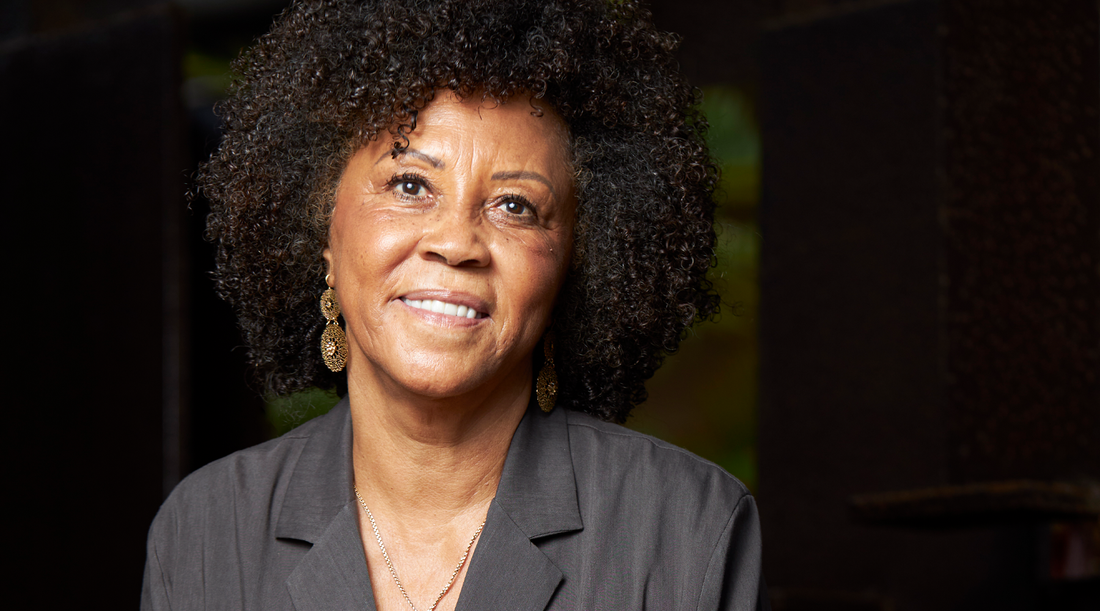
EDINE CRESPO, FOUNDING PARTNER OF COCONUTS/CAFÉ DEL MAR
Share
«[…] I have no doubt that my work inspires many women, especially because they realize that yes, it is possible.»
Edine Crespo, a founding partner of Coconuts/Café del Mar, is considered one of the 100 most influential women in Angola. Her daughter, Ana Catarina, now the General Director, takes on the legacy of a project that has gained immense recognition in the national market and prioritizes Angolan suppliers and products, vehicles for a sector that is also a national landmark.

How does Café Del Mar value and utilize domestic products in its cuisine? Is there a conscious effort to reduce dependence on imported products?
Without a doubt, investing in the agricultural sector was a significant relief for restaurant entrepreneurs, among others. When we began our operations in 1998, in the midst of wartime, our heavy dependence on imports left us constantly apprehensive about the daily availability of agricultural products to meet our customers' needs. Today, we have a vast network of local suppliers, ranging from small farmers to large-scale producers, allowing us to make choices based on quality and price. We have always prioritized domestic production and only resort to importing certain very specific products—such as dairy and meat—when we cannot find the quality necessary to maintain our standards in the local market.
What challenges have you faced in sourcing quality, locally produced produce, and how does this impact the restaurant's daily operations?
The main challenge we face is the lack of consistency, both in product quality and immediate availability. Sometimes, we're forced to anticipate stockouts and even remove certain dishes from the menu due to a lack of adequate local supply. Another critical issue is price fluctuations, as any variation in raw material costs directly impacts our prices, which inevitably translates to the menu.
In your opinion, what is needed for Angola to become truly self-sustainable in terms of agricultural production and food supply?
I believe it's crucial that we start seriously considering the transport of goods by sea or rail. Current land access routes are generally in poor condition, significantly hindering the flow of goods. Furthermore, road transport costs tend to increase due to the constant wear and tear on trucks, making it even more difficult to transport products from the provinces—which are major production centers—to major consumer markets. I believe that the creation of regional logistics hubs could also facilitate efficient storage and distribution, reducing costs and losses along the way.
"I think it is essential that we start seriously considering the transport of goods by sea or rail."
Does the restaurant partner with local producers? If so, how do these partnerships contribute to strengthening the rural economy and ensuring the freshness of the products served?
Yes. As mentioned, most of our suppliers are local. We work primarily with seasonal fruits and vegetables, which ensures freshness and quality in our dishes. Many of the producers we work with were previously in the informal sector, and we've successfully brought them into the formal economy. I believe these partnerships have a direct impact on the sustainable growth of small, local producers.
How do you see the role of restaurant owners in promoting the consumption of local products and educating consumers about the importance of food sustainability?
Restaurant owners play an important role in promoting the consumption of local products, as they can transform them in ways that aren't always obvious to others. Furthermore, restaurants are one of the country's calling cards, allowing us to present local ingredients to both national and international customers. I believe that, today, a form of food sustainability already exists, albeit largely unconsciously. At least when it comes to fruits and vegetables, since, generally speaking, both in restaurants and supermarkets, we predominantly find products sourced from national farms.
Does your Group have any farms that produce?
The Group does not have a dedicated farm, as our focus is exclusively on the restaurant sector. However, we do have a vegetable garden at the restaurant, where we exclusively grow and consume basil, caxinde, parsley, and arugula.
This year you pass the baton to your daughter Catarina - what legacy do you hope to leave her and what vision do you share for the continuation of Café Del Mar?
Catarina has joined a team where many have walked with her in their arms. I hope she has a keen sense of justice, humanity, solidarity, and respect; these are, for me, the fundamental values in life. Café Del Mar is a daily challenge; we always strive to be better, and with Catarina's arrival on the team, I've felt the positive impact of the "new blood" in various aspects of our business. We are perfectly aligned regarding investments in the near future and, above all, the continuity of a project that is undoubtedly a brand in the national market.
You were recently elected one of the 100 most influential women in Angola - how do you view this distinction?
I'm honored by this recognition; it's 26 years of hard work, done with dedication and love, in a very complicated and challenging field that requires immense resilience. I take this with great responsibility because I have no doubt that my work inspires many women, especially by realizing that yes, it is possible.

«Café Del Mar is a daily challenge, we always try to be better […]»
